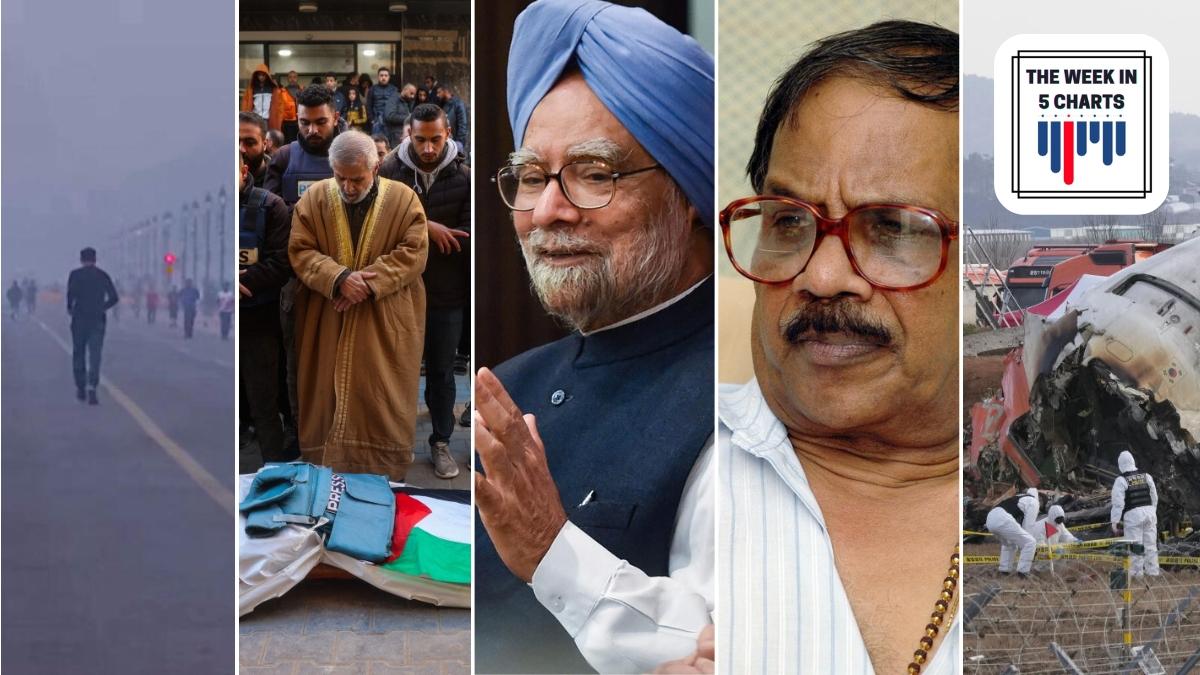
Former PM Manmohan Singh dies at 92, South Korea plane crash, Most dangerous places for journalists, and more: The week in 5 charts
The Hindu
Here are five graphics that will help you understand some of the key stories from last week
India’s former Prime Minister Manmohan Singh, widely regarded as the architect of India’s economic reform and a landmark nuclear deal with the United States, has died.
Singh was admitted to New Delhi’s All India Institute of Medical Sciences late Thursday (December 26, 2024) after his health deteriorated due to a “sudden loss of consciousness at home,” the hospital said in a statement.
“Resuscitative measures were started immediately at home. He was brought to the Medical Emergency” at 8:06 p.m., the hospital said, but “despite all efforts, he could not be revived and was declared dead at 9:51 p.m.”
Singh was being treated for “age-related medical conditions,” the statement said.
A mild-mannered technocrat, Singh became one of India’s longest-serving prime ministers for 10 years and leader of the Congress Party in the Parliament’s upper house, earning a reputation as a man of great personal integrity. He was chosen to fill the role in 2004 by Sonia Gandhi, the wife of assassinated Prime Minister Rajiv Gandhi.
Singh was re-elected in 2009, but his second term as prime minister was clouded by financial scandals and corruption charges over the organization of the 2010 Commonwealth Games. This led to the Congress Party’s crushing defeat in the 2014 national election by the Hindu nationalist Bharatiya Janata Party under the leadership of Narendra Modi.
Singh adopted a low profile after relinquishing the post of prime minister.





















 Run 3 Space | Play Space Running Game
Run 3 Space | Play Space Running Game Traffic Jam 3D | Online Racing Game
Traffic Jam 3D | Online Racing Game Duck Hunt | Play Old Classic Game
Duck Hunt | Play Old Classic Game











